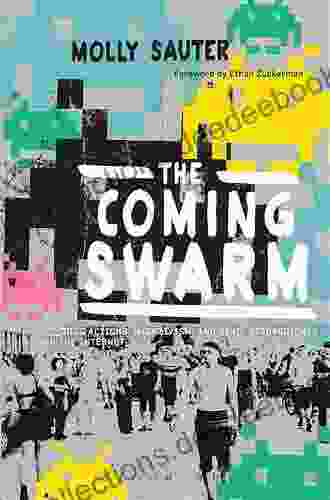DDoS Actions, Hacktivism, and Civil Disobedience on the Internet: Exploring the Nexus of Online Activism and Legal Consequences

The internet has emerged as a powerful platform for activism and political dissent. In recent years, we have witnessed a rise in online protest movements, hacktivist groups, and individuals engaging in various forms of cyberactivism. These actions often involve tactics such as Distributed Denial of Service (DDoS) attacks, website defacements, and leaks of sensitive information. While these actions are often aimed at exposing injustices, raising awareness, and catalyzing change, they also raise important legal and ethical questions. In this article, we will delve into the complex relationship between DDoS actions, hacktivism, and civil disobedience on the internet. We will explore the motivations and methods employed by online activists, examining the legal implications and ethical considerations of their actions.
DDoS attacks involve flooding a targeted website or server with a massive amount of traffic, rendering it inaccessible to legitimate users. While DDoS attacks can be effective in disrupting operations and causing financial losses, they can also have unintended consequences.
Motivations and Methods: DDoS attacks are often employed by hacktivist groups and online activists as a form of protest or retaliation against perceived injustices. The targets of these attacks can range from government websites and corporate entities to websites promoting hate speech or spreading misinformation. Perpetrators use botnets, networks of compromised computers, to generate massive amounts of traffic and overwhelm the target server's capacity.
4.4 out of 5
| Language | : | English |
| File size | : | 1247 KB |
| Text-to-Speech | : | Enabled |
| Enhanced typesetting | : | Enabled |
| Word Wise | : | Enabled |
| Print length | : | 192 pages |
| Screen Reader | : | Supported |
Legal Implications: DDoS attacks are illegal in most jurisdictions, as they constitute a form of cybercrime. The perpetrators can be charged with computer hacking, denial of service, and even terrorism, depending on the scale and impact of the attack. Governments and law enforcement agencies have increased their efforts to combat DDoS attacks, leading to numerous arrests and prosecutions worldwide.
Ethical Considerations: While DDoS attacks can be effective in disrupting operations and raising awareness, they also raise ethical concerns. Critics argue that these attacks can cause significant financial losses, disrupt essential services, and impede access to information for legitimate users. The line between online activism and cybercrime can become blurred when DDoS attacks target critical infrastructure, such as hospitals, utilities, or government agencies.
Hacktivism refers to the use of hacking techniques for political or social activism. Hacktivists often engage in website defacements, data breaches, and other forms of cyber disruption to expose wrongng, promote transparency, or challenge oppressive regimes.
Motivations and Methods: Hacktivists are driven by a desire to expose corruption, promote freedom of speech, and advocate for social justice. Their tactics include website defacements, where they replace or alter the content of a target website with their own message; data breaches, where they access and leak sensitive information to highlight vulnerabilities or expose wrongngs; and denial-of-service attacks, as discussed above.
Legal Implications: The legality of hacktivism is often contested. While some argue that hacktivist actions can be justified as a form of civil disobedience or whistle-blowing, others view them as illegal cybercrimes. Hacktivists face the risk of being prosecuted for computer hacking, data theft, and other related offenses. However, in some cases, hacktivist actions have led to positive outcomes, such as the exposure of corporate malfeasance or the release of classified information that served the public interest.
Ethical Considerations: Hacktivism raises complex ethical questions. While hacktivists often operate with good intentions, their actions can have unintended consequences. Data breaches can compromise personal information and privacy, and website defacements can disrupt legitimate operations. Hacktivists must carefully weigh the potential benefits and risks of their actions, considering the ethical implications and the rule of law.
Civil disobedience refers to the intentional violation of the law as a form of protest or conscientious objection. In the context of the internet, civil disobedience can take various forms, including online sit-ins, virtual boycotts, and hackathons aimed at solving social problems.
Motivations and Methods: Online civil disobedience is often motivated by a belief that traditional forms of protest are ineffective or that the internet provides a more powerful platform for resistance. Activists engage in tactics such as flooding social media platforms with protests, organizing online campaigns to boycott specific websites or companies, and creating alternative platforms for free speech and information sharing.
Legal Implications: The legality of online civil disobedience depends on the specific actions taken and the jurisdiction in which they occur. In some cases, online protests may be protected by freedom of speech laws. However, activities that involve hacking, data breaches, or disruption of essential services may be considered illegal and subject to prosecution.
Ethical Considerations: Online civil disobedience raises ethical questions similar to those faced by traditional forms of civil disobedience. Activists must balance their right to protest with the rights of others and the potential consequences of their actions. They must also consider the ethical implications of using technology to disrupt or manipulate online spaces for political purposes.
The rise of DDoS actions, hacktivism, and civil disobedience on the internet has created a complex and challenging landscape for online activism. While these tactics can be effective in raising awareness, exposing injustices, and catalyzing change, they also raise important legal and ethical questions.
As online activism continues to evolve, it is essential to strike a balance between protecting freedom of expression, upholding the rule of law, and safeguarding the rights and interests of all internet users. Governments, law enforcement agencies, and civil society organizations must work together to develop clear and just policies that address the challenges and opportunities posed by online activism.
Ultimately, the future of online activism will depend on the ability of all stakeholders to navigate the complexities of the digital age and to engage in meaningful dialogue about the responsible use of technology for social change. By embracing a spirit of collaboration, innovation, and respect for the rule of law, we can ensure that the internet remains a vibrant platform for activism and a powerful tool for promoting justice and equality.
4.4 out of 5
| Language | : | English |
| File size | : | 1247 KB |
| Text-to-Speech | : | Enabled |
| Enhanced typesetting | : | Enabled |
| Word Wise | : | Enabled |
| Print length | : | 192 pages |
| Screen Reader | : | Supported |
Do you want to contribute by writing guest posts on this blog?
Please contact us and send us a resume of previous articles that you have written.
 Book
Book Novel
Novel Text
Text Story
Story Genre
Genre Reader
Reader Library
Library Paperback
Paperback Magazine
Magazine Paragraph
Paragraph Sentence
Sentence Shelf
Shelf Foreword
Foreword Synopsis
Synopsis Annotation
Annotation Manuscript
Manuscript Scroll
Scroll Codex
Codex Classics
Classics Library card
Library card Biography
Biography Dictionary
Dictionary Resolution
Resolution Librarian
Librarian Catalog
Catalog Borrowing
Borrowing Stacks
Stacks Archives
Archives Periodicals
Periodicals Scholarly
Scholarly Lending
Lending Academic
Academic Journals
Journals Special Collections
Special Collections Interlibrary
Interlibrary Thesis
Thesis Dissertation
Dissertation Storytelling
Storytelling Reading List
Reading List Theory
Theory Spencer Earl Watts
Spencer Earl Watts Aaron Joy
Aaron Joy Eat Like A Local
Eat Like A Local Jenny Brigalow
Jenny Brigalow Wendy Smith
Wendy Smith Allan Swenson
Allan Swenson Scott Burk
Scott Burk Luca Tosi
Luca Tosi Angel Dominguez
Angel Dominguez Nicoletta Arbia
Nicoletta Arbia Jane Dobisz
Jane Dobisz Dallas Travers
Dallas Travers Mikhail Bulgakov
Mikhail Bulgakov Janita R Hall Swadley
Janita R Hall Swadley Erich Fromm
Erich Fromm Sandra Hillawi
Sandra Hillawi Justin Parkhurst
Justin Parkhurst Kymani Forde
Kymani Forde Denise Brienne
Denise Brienne Steven A Knight
Steven A Knight
Light bulbAdvertise smarter! Our strategic ad space ensures maximum exposure. Reserve your spot today!

 Duane KellyChristmas Tales Of Alabama Kelly Kazek: A Magical Journey Into The Heart Of...
Duane KellyChristmas Tales Of Alabama Kelly Kazek: A Magical Journey Into The Heart Of... Arthur MasonFollow ·14.9k
Arthur MasonFollow ·14.9k Kenzaburō ŌeFollow ·8.4k
Kenzaburō ŌeFollow ·8.4k Owen SimmonsFollow ·18.4k
Owen SimmonsFollow ·18.4k Frank ButlerFollow ·5k
Frank ButlerFollow ·5k Graham BlairFollow ·19.9k
Graham BlairFollow ·19.9k George OrwellFollow ·8.5k
George OrwellFollow ·8.5k Jacques BellFollow ·7.7k
Jacques BellFollow ·7.7k Billy PetersonFollow ·10.4k
Billy PetersonFollow ·10.4k

 Andy Hayes
Andy HayesEmbracing Now: Embark on a Mindfulness Journey for a...
In a world...

 Heath Powell
Heath Powell100 Hymns for Violin and Guitar: A Comprehensive Guide to...
The violin and...

 Floyd Richardson
Floyd RichardsonBark In The Park: Poems For Dog Lovers
Dogs are our best...

 Douglas Adams
Douglas AdamsThe Barter Crusade: A Journey into the Realm of Exchange...
In a world driven by monetary transactions,...

 Nathaniel Hawthorne
Nathaniel HawthorneInsight Guides Explore Nice & the French Riviera...
Prepare to embark on an unforgettable journey...

 Carlos Fuentes
Carlos FuentesThe Ultimate Practical Guide to Percussion: Exploring the...
Embark on a journey into the enchanting...
4.4 out of 5
| Language | : | English |
| File size | : | 1247 KB |
| Text-to-Speech | : | Enabled |
| Enhanced typesetting | : | Enabled |
| Word Wise | : | Enabled |
| Print length | : | 192 pages |
| Screen Reader | : | Supported |










